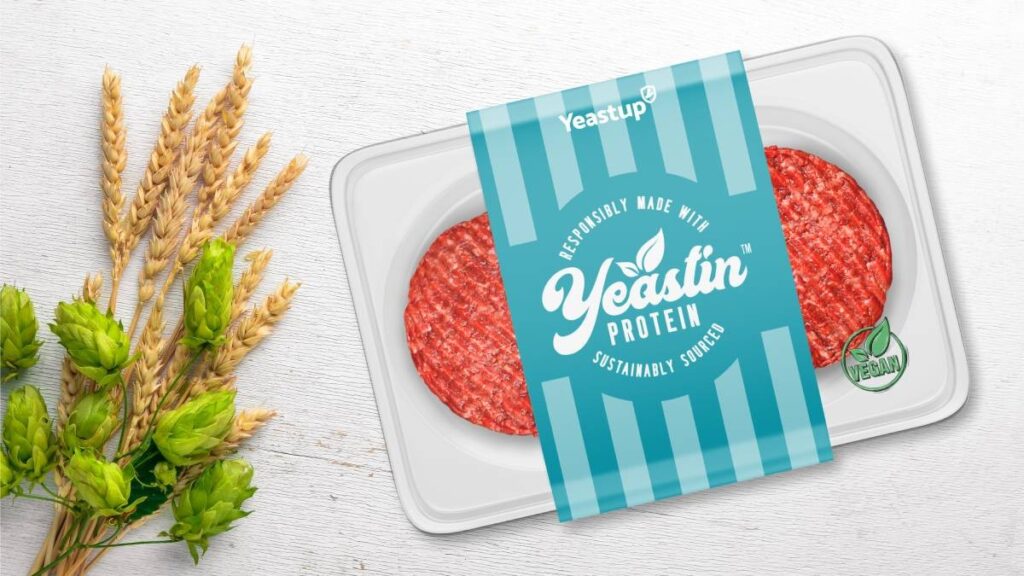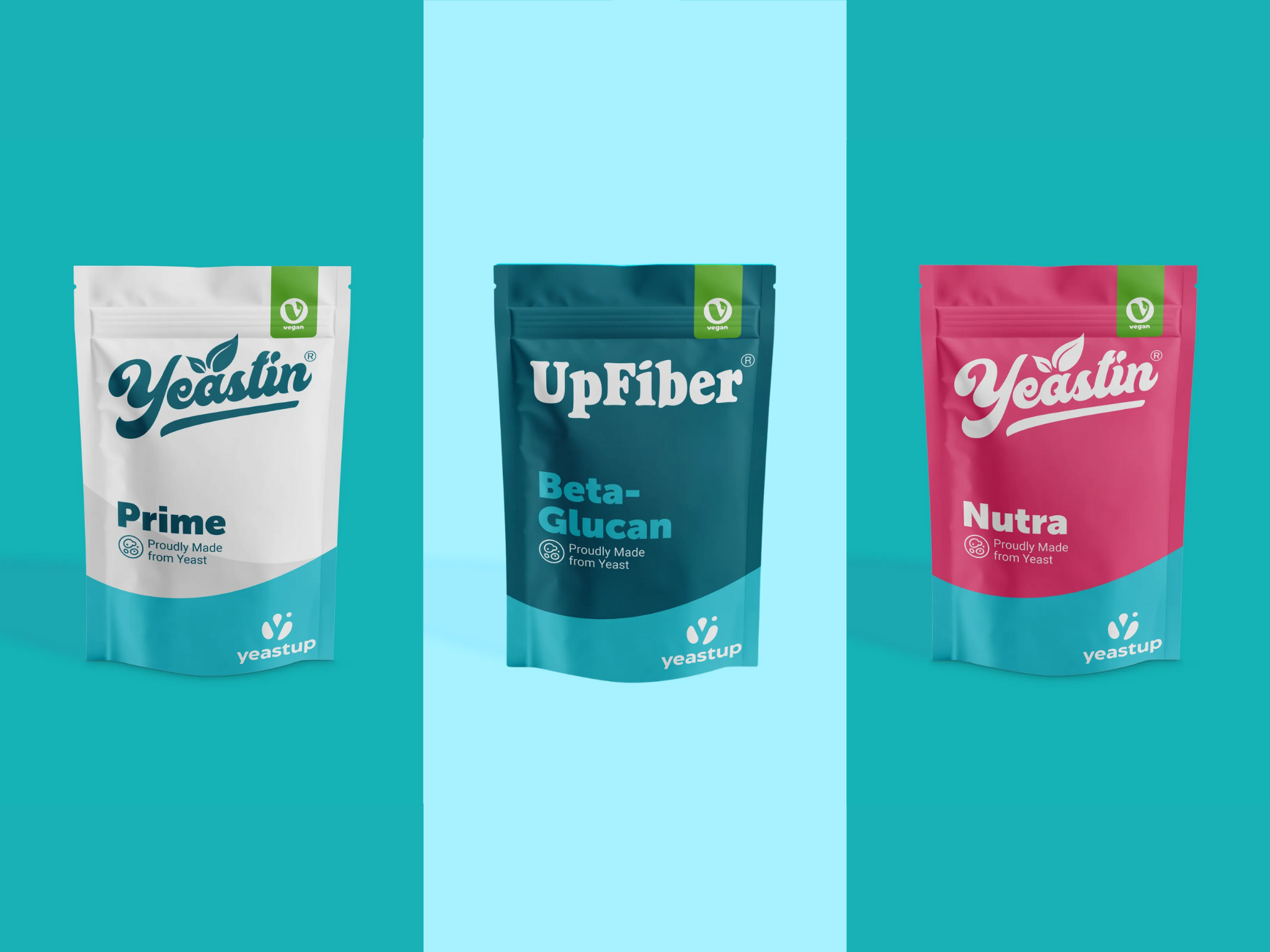Swiss Startup Brews $10M in Funding to Repurpose Dairy Factory for Beer Waste Protein
4 Mins Read
Switzerland’s Yeastup has closed a $9.9M Series A round to turn a dairy factory into one that produces proteins and functional ingredients from spent brewer’s yeast.
Turning beer industry waste into high-value ingredients, Swiss startup Yeastup has received 8.9 million francs ($9.9M) in fresh funding to transform a former dairy factory as part of its scale-up efforts.
Investors in the Series A round included Beyond Impact, Gentian Investments, Newtree Impact, and Angel House, alongside participation from several renowned family offices from Switzerland and abroad.
The capital will be used to repurpose a former dairy factory owned by Cremo, Switzerland’s second-largest milk producer, to manufacture food, nutraceutical and cosmetic ingredients from spent brewer’s yeast, an often underutilised byproduct of the brewing industry.
The large-scale facility will have the capacity to upcycle 2,000 tonnes of brewer’s yeast annually, leveraging top-standard equipment while requiring limited capital expenditure.
“We are pleased to collaborate with Yeastup, whose innovative process not only brings new life to our facility but also demonstrates how existing dairy infrastructure can be successfully utilized for the alternative protein sector,” said Cremo CEO Ralph Perroud. “We see this as an opportunity to reposition ourselves and explore innovative pathways together with Yeastup.”
Making proteins and fibres to replace eggs and enhance vegan meat

Founded in 2020 by Daniel Gnos and Urs Briner, Yeastup has devised a patent-pending process that combines mechanical and gentle cell disruption with phase separation methods and advanced membrane technology to isolate protein, beta-glucan and mannoprotein in a single industrial process.
This removes unwanted fermentation byproduct, like bitter compounds, and produces soluble yeast proteins and high-quality fibres. Water is recovered and reintroduced into the process, which helps the company close the loop and contribute to the circular economy.
Its protein products are branded as Yeastin, and are suitable for a variety of uses. They boast a protein digestibility score of 1 (akin to that of eggs or beef), are soluble, and have a neutral taste, with their production generating 74% fewer emissions than pea protein.
Yeastin Prime’s gelling, binding and emulsifying properties make it a suitable replacement for eggs in things like vegan mayo, creamy spreads, and baked goods, while the ideal protein-to-fibre ratio enables enhanced texture, structure, and moisture retention for meat alternatives.
The product – which is said to surpass pea, wheat and soy protein in biological value – is designed as a clean-label solution to E-numbers and additives in a bid to shorten ingredient lists, a key factor for Europeans amid growing concerns around ultra-processed foods.
Yeastup also makes a collagen peptide alternative for protein bars and sports nutrition, called Yeastin Nutra. This has a complete amino acid profile and a biological value on par with animal protein, and improves the texture, juiciness, and softness of high-performing bars for athletes.
Meanwhile, its fibre range is said to have advanced functionalities like optimal gelling and water-binding properties, along with low-temperature applications. This includes UpFiber Beta-Glucan, ideal for dietary supplements, functional foods and skincare, as well as UpFiber Mannoprotein, a high-purity, multifunctional ingredient for the food, beverage, wine and cosmetics industries.
Protein from beer waste on the rise

The startup has established several strategic supply and engineering deals to ensure cost competitiveness, including German gelatin and collagen peptide producer Gelita.
“Yeast-based ingredients have the potential to transform how alternative products are developed and produced,” said Martin Hahn, Gelita’s head of emerging platforms and tech. “Yeastup provides proteins and fibres, allowing customers to create tailored solutions and optimise ingredient lists and functionalities.”
The new facility will be a critical lever for Yeastup to meet the “significant market demand” and turning a profit, while also serving as a reference site for global scale-up plans.
“We have set a new standard in downstream ingredient extraction,” claimed CEO Gnos. “As a former food technologist in brewing and startup entrepreneur in the functional food space, it’s incredibly rewarding to see how our groundbreaking innovation has convinced consumers, partners, and investors.
“There are so many compelling reasons why this makes sense for all stakeholders. This support motivates me and the entire team to go the extra mile for Yeastup.”
Aside from the VC investments, Yeastup has been supported with 2.45 million francs ($2.75M) in grants from state investor Innosuisse and regional development funding from the canton of Bern. Additionally, it has won the SEIF Award and was honoured at the Tech Tour food tech event in 2023.
The company is one of several others making use of beer waste to produce functional ingredients. Germany’s ProteinDistillery uses biomass fermentation to turn spent brewer’s yeast into an egg-white-like ingredient called Prew:tein, while Dutch player Revyve is also using the byproduct to make an egg substitute to enhance plant-based meat.
Much like Yeastup, France’s Yeasty has discovered a way to remove the bitterness from brewer’s yeast, producing a flour for alternative protein, pet food, and nutrition products. Meanwhile, Budweiser and Stella Artois parent AB InBev – the world’s largest beer manufacturer – is developing alternative proteins from spent brewer’s grain.
But Benoît de Bruyn, managing director of Newtree Impact, believes YeastUp’s tech process makes it stand out, and is what made his firm invest in the startup. “Their upscaling process results in significantly better products and economics compared to others in this space,” he said.



